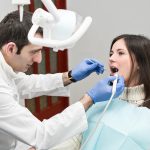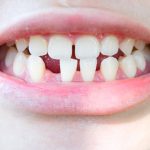At What Age Do Your Wisdom Teeth Erupt? A Comprehensive Guide

Wisdom teeth, also known as third molars, are the last set of teeth to develop in the human mouth. These teeth usually appear between the ages of 17 and 25, and can cause a range of dental problems if not monitored properly. Wisdom teeth are notorious for causing pain, discomfort, and even infections that can spread to other parts of the body. For many people, the emergence of wisdom teeth can be a stressful experience, as they may not know what to expect or how to manage the accompanying symptoms. This comprehensive guide on the eruption of wisdom teeth aims to provide a thorough understanding of the process, including the different stages of development, potential complications, and treatment options. We will delve into the factors that influence the timing of wisdom teeth eruption, such as genetics and oral health, and explore the reasons why some individuals may not develop wisdom teeth at all. By the end of this guide, readers will have a better understanding of what to expect during the eruption of wisdom teeth, and how to take care of their oral health during this critical period.
Wisdom teeth are the third molars that typically emerge in the back of a person’s mouth between the ages of 17 and 25. They are called wisdom teeth because these molars usually come in at a time when a person is believed to be wiser and more mature. Wisdom teeth serve no purpose in modern-day humans, as our diets have evolved and our jaws have become smaller. In fact, wisdom teeth can often cause problems, such as impaction, infection, and crowding of other teeth. As a result, many dentists recommend removing wisdom teeth before they cause any issues. However, not everyone needs to have their wisdom teeth removed, and it is important to consult with a dentist to determine the best course of action.
Knowing the eruption age of wisdom teeth is crucial for several reasons. Firstly, it helps in predicting any potential complications that may arise during the eruption process. In some cases, wisdom teeth can grow in an incorrect position, leading to overcrowding, pain, and infection. Secondly, understanding the eruption age can help in planning for the necessary dental procedures, such as extractions or braces. Thirdly, it can also aid in identifying any underlying dental issues that may be affecting the eruption process, such as impacted teeth or gum disease. Therefore, staying informed about the eruption age of wisdom teeth can help individuals take proactive steps towards maintaining their oral health and preventing future dental problems.
The Eruption Process

The eruption process of wisdom teeth is a natural phenomenon that occurs in most individuals during their late teenage years or early adulthood. The eruption process can vary from person to person, but typically the wisdom teeth will begin to emerge between the ages of 17 and 25. The process can be uncomfortable and even painful for some individuals, as the teeth push through the gum tissue and into the mouth. In some cases, the teeth may become impacted, meaning they are unable to fully emerge due to lack of space in the mouth. This can lead to infection and other complications, and may require removal of the teeth. The eruption process begins with the development of the wisdom teeth below the surface of the gums. As the teeth continue to grow, they push against the surrounding gum tissue, causing it to stretch and eventually break down. This allows the teeth to emerge into the mouth, where they will continue to grow and settle into their final position. During this process, individuals may experience discomfort, swelling, and even infection if the area is not kept clean and free of bacteria. It is important to maintain good oral hygiene during this time, and to seek professional dental care if any complications arise.
The step-by-step process of wisdom teeth eruption is a fascinating one. It begins with the formation of the third molar tooth, which occurs around the age of 10. The tooth then begins to push through the gum tissue, a process known as eruption, which typically occurs between the ages of 17 and 25. During this time, the tooth may cause discomfort, swelling, and irritation in the surrounding gum tissue. As the tooth continues to emerge, it will begin to assume its final position in the mouth. Finally, the tooth will fully erupt, allowing it to be fully functional in the mouth. However, it is important to note that not everyone will develop wisdom teeth, and those who do may experience complications such as impaction, infection, or crowding of existing teeth.
The eruption of wisdom teeth is a natural process that occurs in most people between the ages of 17 and 25. The timeline for eruption can vary from person to person, but typically, the lower wisdom teeth erupt before the upper ones. The process of eruption can take several months and can cause discomfort and pain in some cases. It is important to maintain good oral hygiene during this period to prevent infections and decay. Regular dental check-ups can help monitor the eruption process and ensure that any issues are addressed promptly. Overall, the timeline for wisdom teeth eruption is a normal and expected part of the aging process.
Factors That Affect Eruption Age
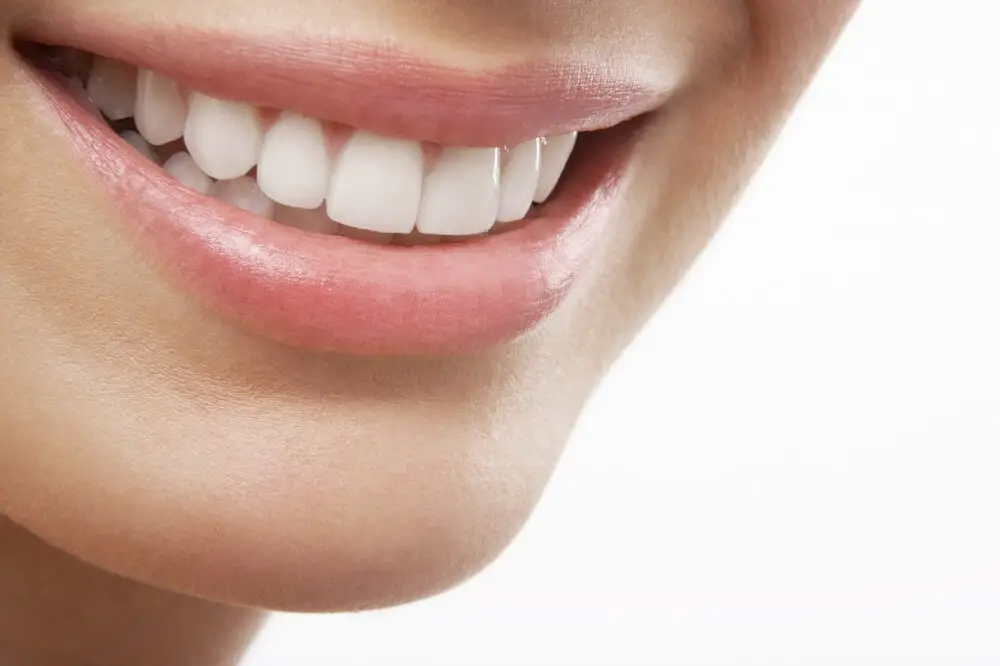
There are several factors that can influence the age at which wisdom teeth erupt. Genetics play a significant role, as the size and shape of an individual’s jaw can impact the eruption of their teeth. For example, if someone has a smaller jaw, there may not be enough room for their wisdom teeth to grow in, causing them to erupt later or not at all. Additionally, gender can also affect eruption age, with women typically experiencing earlier eruption than men. Other factors, such as overall health and nutrition, as well as oral hygiene practices, can also impact eruption age. Environmental factors can also play a role in the timing of wisdom teeth eruption. For instance, if someone experiences a significant amount of stress or trauma, it can delay the development of their teeth, leading to a later eruption age. Similarly, if an individual undergoes orthodontic treatment, such as braces, it can affect the position of their teeth and alter the timing of wisdom teeth eruption. Understanding the various factors that can impact eruption age can help individuals better anticipate when their wisdom teeth may come in and prepare for any potential complications that may arise.
Genetics plays a crucial role in determining the eruption of wisdom teeth, as it does with most human traits. Studies have shown that the timing of wisdom teeth eruption is highly heritable, meaning that it is largely determined by the genes passed down from parents. Specifically, variations in genes related to tooth development can affect the timing and pattern of wisdom teeth growth. In addition, environmental factors such as diet and dental hygiene can also influence the expression of these genes, further complicating the picture. Overall, a better understanding of the genetics underlying wisdom teeth eruption could help to improve dental health outcomes and inform personalized treatment strategies.
While gender may not have a direct correlation to the eruption of wisdom teeth, it is important to note that there are some differences between males and females when it comes to dental health. For example, hormonal changes during puberty and pregnancy can increase the risk of gum disease, which can affect the health of the teeth and gums. Additionally, women are more likely to experience temporomandibular joint (TMJ) disorders, which can cause pain and discomfort in the jaw. It is important for individuals of all genders to prioritize their dental health and visit their dentist regularly to ensure the proper development and maintenance of their teeth and overall oral health.
Apart from age, there are several other factors that may delay or accelerate the eruption of wisdom teeth. Genetics play a significant role in determining the timing of wisdom teeth development, with some individuals experiencing earlier or later eruptions due to their genetic makeup. Additionally, certain medical conditions can affect the growth and development of wisdom teeth, such as hormonal imbalances, malnutrition, and underlying bone disorders. On the other hand, some lifestyle factors can also impact the eruption of wisdom teeth, such as smoking, alcohol consumption, and poor oral hygiene. These factors can lead to delayed or impacted wisdom teeth, which may require surgical intervention to correct.
Signs and Symptoms of Eruption

The eruption of wisdom teeth is a natural process that may cause discomfort and pain for some individuals. Signs and symptoms of wisdom teeth eruption include swelling of the gums, redness, and tenderness around the affected area. Pain is also a common symptom, and it may vary from mild to severe, depending on the individual. Other indications of wisdom teeth eruption include difficulty opening the mouth, bad breath, and a foul taste in the mouth. In some cases, wisdom teeth may emerge partially or grow at an angle, causing overcrowding and misalignment of other teeth. This may lead to further complications such as tooth decay, gum disease, and infection. Therefore, it is essential to monitor the signs and symptoms of wisdom teeth eruption closely and seek professional advice if necessary. Regular dental check-ups can help identify any potential issues and provide appropriate treatment options to alleviate pain and prevent further complications.
During the eruption of wisdom teeth, individuals may experience a variety of symptoms. Pain, swelling, and tenderness in the gums and jaw are common, as well as difficulty opening the mouth and chewing. Some people may also notice a bad taste or odor in their mouth, due to food particles getting trapped in the newly emerging teeth. In more severe cases, impacted wisdom teeth can cause headaches and even ear pain. It is important to monitor these symptoms and consult with a dental professional if they persist or worsen, as wisdom teeth can sometimes cause damage to neighboring teeth and require extraction.
As wisdom teeth start to grow, they can get impacted or trapped in the jawbone, causing discomfort and pain. Some of the warning signs of impacted wisdom teeth include difficulty opening the mouth, swelling, redness, and tenderness around the gum line, a foul taste or odor emanating from the mouth, pain and discomfort while eating or speaking, and even headaches. In some cases, impacted wisdom teeth can also lead to infection, gum disease, and even tooth decay. Therefore, it is crucial to keep an eye out for these warning signs and consult a dentist or oral surgeon immediately if any of them occur.
Treatment Options
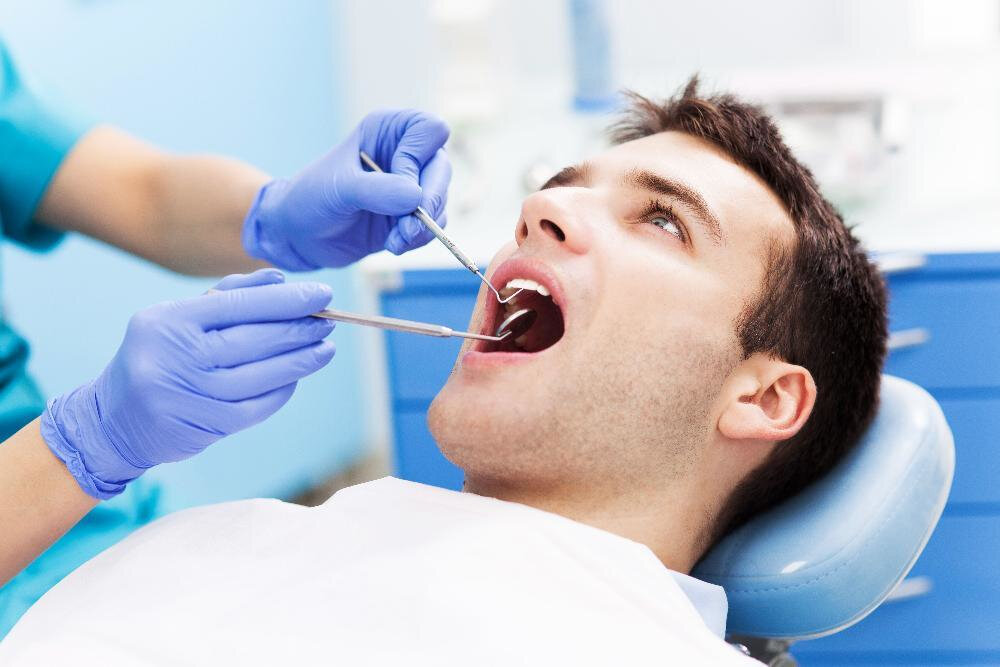
When it comes to the eruption of wisdom teeth, there are various treatment options available based on the specific needs of an individual. One of the most common treatment options is extraction. This procedure involves removing the wisdom teeth to prevent overcrowding and other complications such as infection, inflammation, and tooth decay. Extraction is often recommended when the wisdom teeth are impacted, meaning they are unable to fully emerge from the gum line. In addition, extraction may also be necessary if the wisdom teeth are causing pain or discomfort. Another treatment option for wisdom teeth is orthodontic treatment. Orthodontic treatment involves the use of braces or aligners to straighten teeth and improve the overall alignment of the jaw. This can be an effective treatment option for those who have crowded teeth or a misaligned bite due to the eruption of wisdom teeth. Orthodontic treatment can also help to prevent the need for extraction in some cases by creating enough space for the wisdom teeth to properly erupt. Ultimately, the best treatment option for wisdom teeth will depend on the individual’s specific situation and the advice of a dental professional.
Managing pain during the eruption of wisdom teeth can be challenging, but there are several options to choose from depending on the severity of the pain. Over-the-counter pain relievers such as ibuprofen or acetaminophen can help alleviate mild to moderate pain. For more severe pain, prescription pain medications may be necessary. In addition, applying a cold compress to the affected area or rinsing with warm salt water can provide temporary relief. For those who prefer a more natural approach, herbal remedies such as clove oil or ginger may also help soothe the pain. It is important to consult with a dentist or healthcare provider to determine the best course of action for managing wisdom teeth pain.
Extraction is often the best option for impacted wisdom teeth, which can cause pain, infection, and damage to surrounding teeth if left untreated. There are several extraction options available, including simple extractions for teeth that have fully erupted and surgical extractions for impacted teeth that are still below the gum line. In some cases, a dentist or oral surgeon may need to remove bone or cut into the gums to access the impacted tooth. Depending on the complexity of the extraction, sedation or anesthesia may be used to ensure the patient’s comfort. After the extraction, patients will need to follow specific care instructions to promote healing and prevent complications.
In summary, wisdom teeth are the third molars that typically emerge between the ages of 17 and 25. However, the timing and number of these teeth can vary based on genetics and other factors. It is important to monitor their eruption and seek professional advice if they cause pain or complications. Extraction may be necessary if the teeth do not have enough space to come in properly or if they are impacted. Good oral hygiene and regular check-ups with a dentist can help prevent problems with wisdom teeth. Overall, understanding the eruption of wisdom teeth is crucial for maintaining good oral health.
Maintaining good oral health is crucial for overall well-being. Brushing twice a day and flossing daily are essential habits to prevent the buildup of plaque and bacteria that cause tooth decay and gum disease. Regular visits to the dentist for cleanings and check-ups can catch any potential issues early on. Eating a balanced diet and limiting sugary snacks and drinks can also help keep teeth healthy. It’s important to remember that wisdom teeth can also impact oral health, so monitoring their eruption and consulting with a dentist if necessary is recommended. By taking care of your oral health, you can prevent painful and costly dental problems and enjoy a healthy smile for years to come.
Conclusion
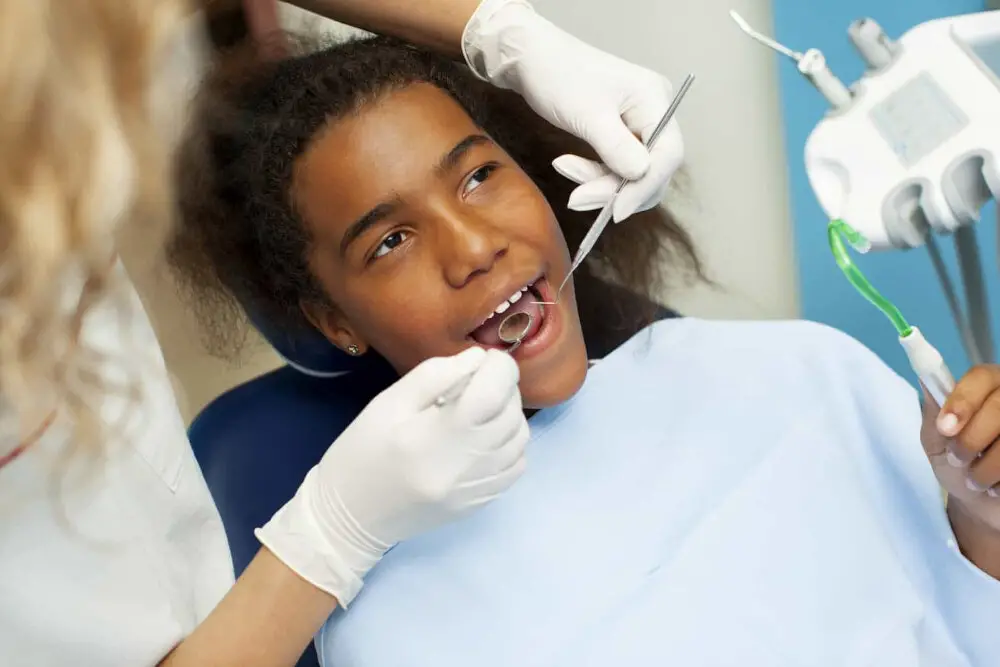
In conclusion, the eruption of wisdom teeth is a natural process that varies from person to person. While some individuals may experience the emergence of their wisdom teeth as early as 17, others may not see them until their early 20s or later. It is important to note that the eruption of wisdom teeth can also be accompanied by discomfort and potential complications, such as tooth decay and gum disease. Therefore, it is crucial to maintain proper oral hygiene and visit a dentist regularly for check-ups and advice on how to manage the eruption of wisdom teeth. Overall, understanding the timing and potential risks associated with the eruption of wisdom teeth can help individuals prepare and take necessary precautions to maintain their oral health.
